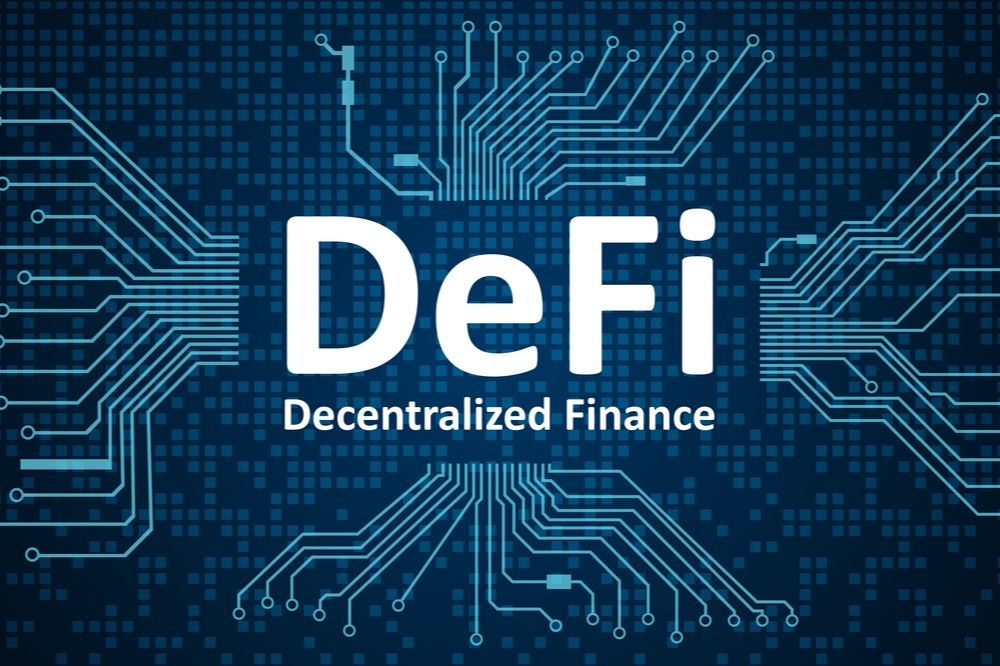Your cart is currently empty!

A Concept for a Decentralized Global Economy
Blockchain and cryptocurrency landscape has seen significant advancements aimed at addressing the limitations of traditional financial systems. Two platforms, Harmony (ONE) and Polkadot, offer unique architectures that can be leveraged to create a decentralized global economy. This article explores how integrating these platforms, along with advanced privacy technologies, can provide a viable alternative to centralized banking systems and pave the way for a more decentralized and accessible financial future, all while ensuring individual autonomy and the right to private property and individual ownership.
The current global financial system, dominated by central banks, faces numerous challenges, including inefficiency, lack of transparency, and systemic risks. Decentralized finance (DeFi) offers a promising solution by utilizing blockchain technology to create transparent, secure, and efficient financial networks. Harmony and Polkadot, with their innovative architectures, provide the foundation for building such a decentralized system.
Harmony: Scalability and Speed
Harmony is designed to address scalability issues through its state sharding and Effective Proof-of-Stake (EPoS) consensus mechanism. State sharding divides the network into smaller, manageable segments (shards) that process transactions in parallel, significantly increasing throughput. Harmony can handle up to 2,000 transactions per second (TPS) with a block time of approximately 2 seconds, making it highly efficient for large-scale use.
Polkadot: Interoperability and Flexibility
Polkadot offers a heterogeneous sharding model where multiple blockchains (parachains) run in parallel, each with its own specific logic and features. The central relay chain provides security and coordination for all connected parachains. Polkadot’s Cross-Chain Message Passing (XCMP) enables seamless communication and transactions between parachains, ensuring interoperability across different blockchains.
Integrating Privacy Technologies
To ensure that the decentralized system maintains user privacy and security, advanced privacy technologies can be integrated:
- Zero-Knowledge Proofs (ZKPs): Ensure transaction privacy without sacrificing verification speed.
- Stealth Addresses: Prevent transaction linkage, enhancing user privacy.
- Multi-Party Computation (MPC): Secure cross-shard and cross-chain transactions, keeping transaction details private.
- Threshold Signatures: Enhance security and privacy within consensus and validation processes.
Steps for a Decentralized Global Economy
- Technical Integration
- Develop a unified platform that integrates Harmony’s state sharding and EPoS with Polkadot’s heterogeneous sharding and XCMP.
- Incorporate ZKPs, stealth addresses, MPC, and threshold signatures to ensure transaction privacy and security.
- Community-Led Development
- Encourage contributions from the global developer community through a robust open-source governance model.
- Create Decentralized Autonomous Organizations (DAOs) to manage different aspects of the platform, ensuring control remains distributed.
- Pilot Programs and Testing
- Conduct pilot programs with DeFi platforms, cooperatives, and non-centralized entities to test the system’s effectiveness.
- Implement real-world use cases demonstrating the viability of the decentralized platform for everyday transactions and international trade.
- Regulatory and Legal Strategy
- Advocate for the benefits of decentralization with global regulatory bodies, emphasizing security, transparency, and reduced systemic risk.
- Develop decentralized compliance mechanisms leveraging privacy technologies to meet regulatory requirements.
- Public and Private Partnerships
- Engage with the DeFi ecosystem, forming partnerships with decentralized exchanges (DEXs) and blockchain-based financial services to integrate and promote the platform.
- Partner with non-banking financial entities like credit unions and microfinance institutions to provide decentralized financial services.
- User Education and Onboarding
- Launch global educational campaigns to raise awareness about the benefits of decentralized financial systems.
- Implement incentive programs to encourage early adoption and participation.
- Scaling and Infrastructure Development
- Invest in decentralized infrastructure development to support scalability and resilience.
- Ensure network resilience by promoting node diversity and geographical distribution.
- Monitoring and Continuous Improvement
- Continuously monitor the platform’s performance and security using decentralized feedback mechanisms.
- Implement iterative upgrades based on community input and technological advancements.
Ensuring Individual Autonomy and Private Property Rights
- Private Property Ownership:
- Individuals retain the right to own and manage private property, ensuring that personal autonomy and property rights are respected.
- Voluntary Participation:
- Participation in communal or cooperative ventures is entirely voluntary. Those who prefer to manage their resources independently can continue to do so without any obligation to join collective efforts.
- Peer-to-Peer Transactions:
- The decentralized financial system supports peer-to-peer transactions, allowing individuals to engage directly with one another without intermediaries, maintaining personal freedom and control over their finances.
Practical Applications
Daily Transactions
- Local Markets and Trade: Individuals can use cryptocurrencies for daily transactions in local markets, ensuring quick and secure payments.
- Community Projects: Funding for community projects can be managed through DAOs, ensuring transparency and collective decision-making.
Resource Sharing and Communal Living
- Shared Resources: Communities can use smart contracts to manage shared resources, such as communal gardens, tools, and facilities, while respecting individual ownership where desired.
- Mutual Aid: Community funds managed through DAOs can provide mutual aid and support during emergencies, promoting resilience and solidarity.
Cross-Community Cooperation
- Inter-Community Trade: Polkadot’s interoperability enables different communities to trade and cooperate without friction, supporting a broader network of interconnected, autonomous communities.
- Joint Ventures: Communities can collaborate on larger projects, pooling resources and expertise through shared governance structures.
Integrating a decentralized, crypto-based economy with a society combining libertarianism and voluntaryism offers a practical and scalable solution for promoting individual freedom, economic autonomy, and collective well-being. By leveraging the strengths of Harmony and Polkadot, enhanced with advanced privacy technologies, such a society can achieve a harmonious balance between personal liberties and communal cooperation, paving the way for a more decentralized and inclusive global economy. Through continuous education, advocacy, and iterative improvements, the goal of a decentralized global economy can be realized without compromising individual autonomy or property rights.

Leave a Reply